#Christopher Adler
Explore tagged Tumblr posts
Text
30 novembre … ricordiamo …
30 novembre … ricordiamo … #semprevivineiricordi #nomidaricordare #personaggiimportanti #perfettamentechic
2023: Sheila Smith, attrice statunitense. Ottenne il suo primo ruolo di rilievo nel 1962 e nel 1962 esordì a Broadway. Rimase attiva sulle scene anche nei primi anni duemila, recitando un’ultima volta in Mame a Raleigh nel 2003, in My Fair Lady nel 2004 e dando l’addio allo scene nel 2009 in A Little Night Music. (n. 1933) 2023: Marcello Marziali, attore italiano. Dal 1986 è stato attore nella…
#30 novembre#Beniamino Gigli#Christopher Adler#Christopher Edward Adler#Enrico Bertorell#Fausto Calogero Pirandello#Fausto Pirandello#Jean Kent#Jean Parker#Joan Mildred Summerfield#Junius Brutus Booth#Lionel Jay Stander#Lionel Stander#Lois Mae Green#Marcello Marziali#Morti 30 novembre#Oscar Fingal O&039;Flahertie Wills Wilde#Oscar Wilde#Paolo Mosca#Paul Walker#Paul William Walker IV#Sandro Mayer#Sandro Michele Emilio Mayer#Sheila Smith
0 notes
Text
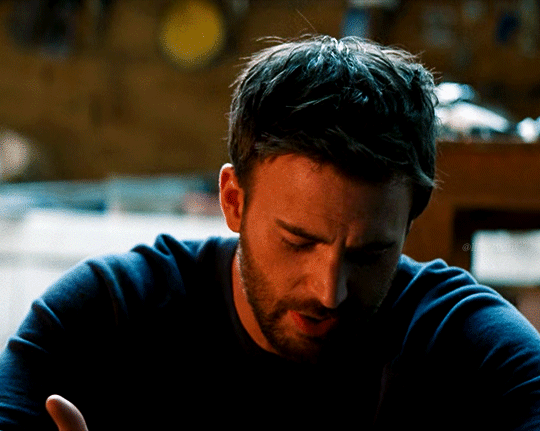


♡ *.✧ big daddy frank ✧.* ♡
#cevans#chris evans gif#chris evans#chris evans gifs#chrisevansgifs#chrisevansedit#chrisevans#chris evans edit#cevansgifs#cevansedit#frank adler#lila's frank gifs#gifted#lila's gifs#evansedit#christopher how dare u#honestly wtf christopher#are you fucking kidding me christopher#also hey hi how ya doin
922 notes
·
View notes
Text






Since my last horror recs post did so well, I thought I’d celebrate October’s beginning with another.
This time, we get a little sacrilegious. You know, for fun.
Between Two Fires
Revelator
Church of the Mountain of Flesh
Clown in a Cornfield
First Creation
#book recommendations#book recs#booklr#books#horror books#horror recs#religious trauma#religious horror#this is some GOOD SHIT#I recommend all of these with my full chest#obviously check tws before reading#but goddam#impossible to pick favs between Between Two Fires COTMF and Revelator#but right now COTMoF is like#up there#clown in a cornfield#church of Frendo#first creation#mars Adler#revelator#Daryl Gregory#Adam Cesare#church of the mountain of flesh#cotmof#between two fires#christopher buehlman
112 notes
·
View notes
Text
A list of some of my favorite theatre-related quotes:
"He's not the finest character that ever lived. But he's a human being, and a terrible thing is happening to him. So attention must be paid." – Arthur Miller
"I know that my works are a credit to this nation and I dare say they will endure longer than the McCarran Act.” –Arthur Miller
"Don't be seduced into thinking that that which does not make a profit is without value.” – Arthur Miller
"Theater has an incredible capacity to move people to social change, to address issues, to inspire social revolution.” – Eve Ensler
"The word theatre comes from the Greeks. It means the seeing place. It is the place people come to see the truth about life and the social situation." – Stella Adler
"I like the ephemeral thing about theatre, every performance is like a ghost - it's there and then it's gone." – Maggie Smith
"That's the magic of art and the magic of theatre: it has the power to transform an audience, an individual, or en masse, to transform them and give them an epiphanal experience that changes their life, opens their hearts and their minds and the way they think.” – Brian Stokes Mitchell
"I think theatre to some extent is always about telling stories, isn't it, and I think what I've learned is that freedom comes when you tell your story; freedom comes when you tell the truth.” – Eve Ensler
"We have the ability to change people's minds and hearts - that's what we want to do with theatre. That's what theatre does... period." – Gavin Creel
"I've always been a believer in the power of art - and music in particular - to inspire change." – Gavin Creel
"Unless the theatre can ennoble you, make you a better person, you should flee from it." Konstantin Stanislavski
"The greatest wisdom is to realize one's lack of it." – Konstantin Stanislavski
"Create your own method. Don't depend slavishly on mine. Make up something that will work for you! But keep breaking traditions, I beg you." – Konstantin Stanislavski
"I don't know what really makes a great musical or not. In the end, you write it, and you write it because you want to write it." – Andrew Lloyd Webber
"You're the luckiest person in the entire world if you know what you really want to do, which I was lucky enough to know when I was very young. And you're the luckiest person in the world if you can then make a living out of it." – Andrew Lloyd Webber
"Obviously, you would give your life for your children, or give them the last biscuit on the plate. But to me, the trick in life is to take that sense of generosity between kin, make it apply to the extended family and to your neighbour, your village and beyond." – Tom Stoppard
"Great theatre is about challenging how we think and encouraging us to fantasize about a world we aspire to." – Willem Dafoe
"I regard the theatre as the greatest of all art forms, the most immediate way in which a human being can share with another the sense of what it is to be a human being." – Thornton Wilder
"Once in awhile, there's stuff that makes me say, That's what theatre's about. It has to be a human event on the stage, and that doesn't happen very often." – Uta Hagen
"The theatre is a spiritual and social X-ray of its time." – Stella Adler
"Theatre was my first love. I can't take the theatre out of me. And I wouldn't want to. To me, it's home." – Jim Parsons
"The way the world is, I think a silly evening in the theatre is a good thing, to take our minds off terror." – Tim Curry
"The theatre is the involuntary reflex of the ideas of the crowd." – Sarah Bernhardt
"Mum wasn't at all religious, but she thought that going to the theatre was as important a ceremonial, communal experience that a person could have." – Hayley Atwell
"In the end I think theatre has only one subject: justice." – Edward Bond
"I feel there's a power in theatre, but it's an indirect power. It's like the relationship of the sleeper to the unconscious. You discover things you can't afford to countenance in waking life. You can forget them, remember them a day later or not have any idea what they are about." – Tony Kushner
"The way you give love is the most profoundly human part of you. When people say it's ugly or a perversion or an abomination, they're attacking the center of your being." – Tony Kushner
"The more you go to a theatre and the more you hear stories you aren't necessarily familiar with, the more open you become." – Lynn Nottage
"I think folks who are resistant to engaging in art become less so once they encounter art that really reflects them." – Lynn Nottage
"And whether or not you're interested in opera or classical music or folk music or the theatre, I think that for a nation's health and well-being it's very important that the arts scene is supported." – Lesley Sharp
"It's communication - that's what theatre is all about." – Chita Rivera
"It's one of the tragic ironies of the theatre that only one man in it can count on steady work - the night watchman." – Tallulah Bankhead
"I've learnt that there's acting for film, acting for theatre, and acting for an audition." – Sarah Snook
"Theatre is expensive to go to. I certainly felt when I was growing up that theatre wasn't for us. Theatre still has that stigma to it. A lot of people feel intimidated and underrepresented in theatre.” – Christopher Eccleston
"Theatre has had a very important role in changing South Africa. There was a time when all other channels of expression were closed that we were able to break the conspiracy of silence, to educate people inside South Africa and the outside world. We became the illegal newspaper." – John Kani
"Films I've really liked are when you've walked out and you're still in that movie for a while. That's virtual reality for me, to go into a theatre, especially with the use of sound - a subconscious thing that's underestimated." – Lynne Ramsay
"It's great to be in a film that's able to have people really want to become socially conscious, to walk out of the theatre and want to do something." – Don Cheadle
"One of my beliefs is that there are certain institutions within a community which stand for the spirit and heart of that community, there's the church, the local football team, the local pub and the theatre." – David Soul
"I think the same way about theatre, you go out there and you are creating a world for a moment that can actually have a real impact on people, present some kind of story that gives you something to think about when you walk away, feeling enriched - if it works out well." — Jeffrey Jones
"What theatre started to look at much earlier than any other form was the internal operations of ordinary people, sometimes using mythic models in order to tell the story." – Pete Townshend
"I don't think it's the job of filmmakers to give anybody answers. I do think, though, that a good film makes you ask questions of yourself as you leave the theatre." – Paul Haggis
"Miller didn't write Death of a Salesman. He released it. It was there inside him, waiting to be turned loose. That's the measure of its merit." – Elia Kazan
"I always go back to theatre. It's probably where I'll draw my last breath." – Peter Gallagher
"People always make that mistake when they talk about theatre - the notion of the 'theatrical' meaning something separate from life. If it doesn't relate to life, it doesn't relate to anything." – Brian Cox
"I think the theatre is as essential to civilization as safe, pure water." – Vanessa Redgrave
“Hold fast to dreams, for if dreams die, life is a broken-winged bird that cannot fly.” – Langston Hughes
“Overcome the notion that you must be regular. It robs you of the chance to be extraordinary.” – Uta Hagen
“We don’t stop playing because we grow old; we grow old because we stop playing.” – George Bernard Shaw
“The power of art can break the shackles that bind and divide human beings.” – Daisaku Ikeda
“The arts make a bridge across this world in ways that nothing else can.” – Julie Andrews
“Everyone deserves to have their story fully told.” – Dominique Morisseau
“Somewhere in our DNA we know that stories are out there to help us understand what we’re doing here on this planet.” – Theresa Rebeck
“To practice any art, no matter how well or badly, is a way to make your soul grow. So do it.” – Kurt Vonnegut
“Don’t listen to anyone who doesn’t know how to dream.” – Liza Minnelli
"Get to know your voice - it's strong, it's resilient, it's expressive, it's you..." – Kristin Linklater
"In the language of an actor, to know is synonymous with to feel." – Konstantin Stanislavski
#theatre#Konstantin Stanislavski#Arthur Miller#Eve Ensler#Stella Adler#Maggie Smith#Brian Stokes Mitchell#Gavin Creel#Andrew Lloyd Webber#Tom Stoppard#Willem Dafoe#Uta Hagen#Thornton Wilder#Jim Parsons#Tim Curry#Sarah Bernhardt#Hayley Atwell#Edward Bond#Tony Kushner#Lynn Nottage#Dominique Morisseau#Lesley Sharp#Chita Rivera#Tallulah Bankhead#Christopher Eccleston#John Kani#Lynne Ramsey#Kurt Vonnegut#Liza Minelli#quotes
28 notes
·
View notes
Text















From Mystique Vol. 2 #001, “Intelligence”
Art by Declan Shalvey and Matt Hollingsworth
Written by Declan Shalvey
#mystique#raven darkhölme#destiny#irene adler#maverick#christoph nord#nick fury jr.#nick fury#maria hill#marvel#comics#marvel comics
5 notes
·
View notes
Text
The last episode of the first run of the G.I. Joe cartoon aired on November 20, 1986. It was followed up by an animated movie (originally meant to be theatrical) and then revived by DIC animation. The Sunbow series ran for 85 episodes. ("Into Your Tent I Will Silently Creep", G.I. Joe, TV Event)

#nerds yearbook#real life event#g.i. joe#ray lee#buzz dixon#michael charles hill#charlie adler#low light#jackson bet#cartoon#animation#michael bell#lift ticket#gregg berger#firefly#arthur burghardt#destro#iceberg#christopher latta#christopher collins#cobra#cobra commander#ripper#brian cummings#dr mindbender#hank garrett#dial tone#dick gautier#serpentor#ed gilbert
3 notes
·
View notes
Text


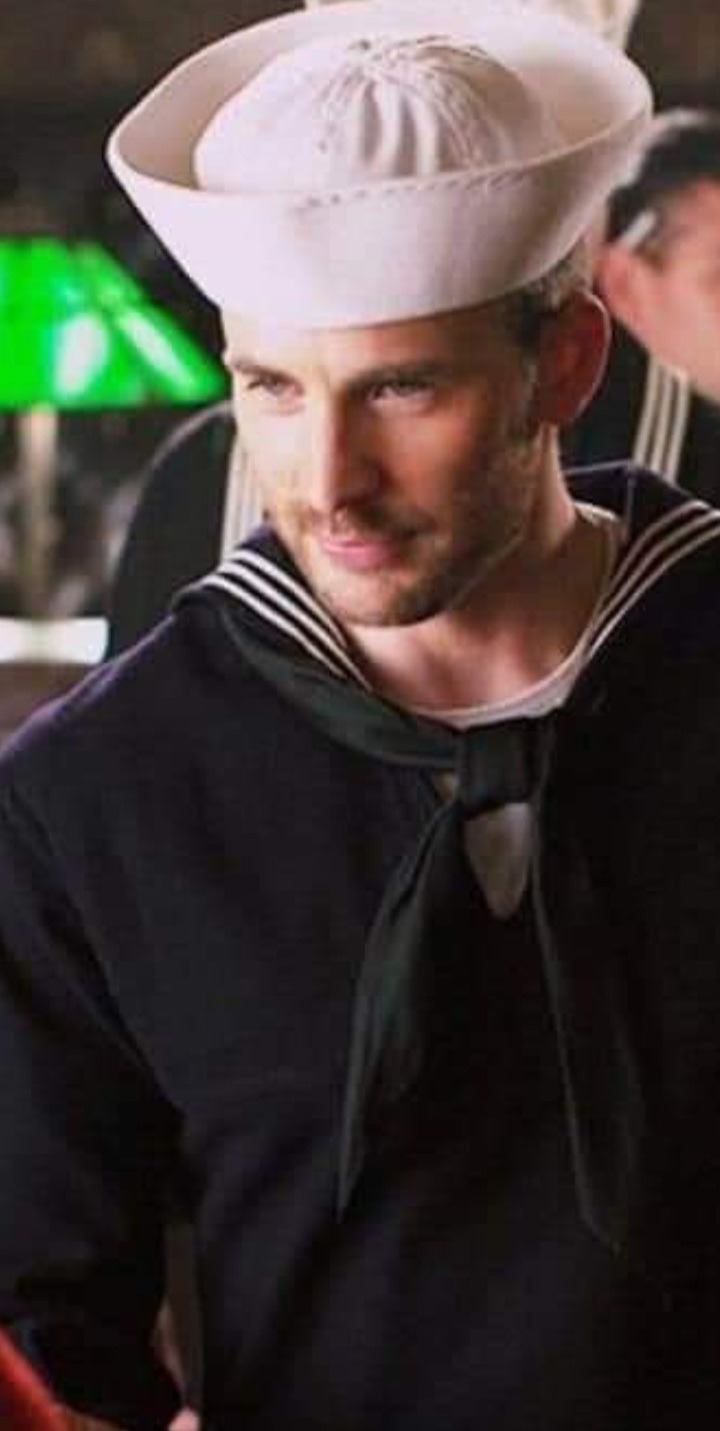

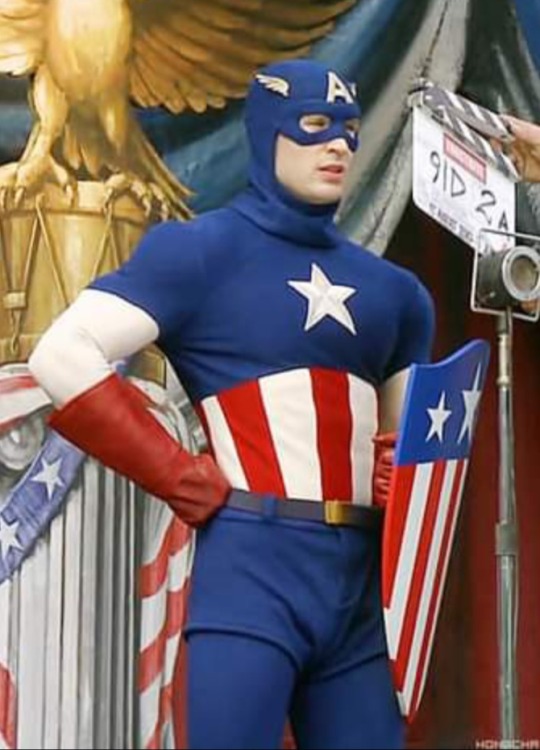
Random Chris Evans characters💙
#chris evans#chrisevans#marvel#steve rogers#chris evans edit#random favorites#jake jensen#hot#gifted#frank adler#whats your number#whatsyournumber colin hot#colin shea#captian america#chris evans characters#playing it cool#sexiest man alive#chris evans sexiest man alive#chris evans pics#christopher robert evans#cevans edit#guys with beards#chris evans in glasses#chris evans pictures#chris evans sexy#chris evans knives out#the losers (2010)#the losers movie#captain america the winter soldier#captain america the first avenger
24 notes
·
View notes
Text
Fave Five: Queer YA that Plays with Time
These are YA novels with time loops, time travel, or alternate timelines. For more time travel YA, click here. Me, Myself & Him by Chris Tebbetts If I See You Again Tomorrow by Robbie Couch Going Bicoastal by Dahlia Adler Another Dimension of Us by Mike Albo Against the Stars by Christopher Hartland Bonus: Coming in August, Pride and Prejudice and Pittsburgh by Rachael Lippincott, and in 2024,…

View On WordPress
#Against the Stars#Alternate Timelines#Another Dimension of Us#Chatham Greenfield#Chris Tebbetts#Christopher Hartland#Dahlia Adler#Going Bicoastal#Groundhog Day#If I See You Again Tomorrow#Mike Abdo#Mike Albo#My Myself & Him#Pride and Prejudice and Pittsburgh#Rachael Lippincott#RObbie Couch#Sliding Doors#Time and Time Again#Time Travel
31 notes
·
View notes
Text
Bit of a palate cleanser from all the commissions I’ve been doing. More of the Adler men! And bonus guest Haddal :v
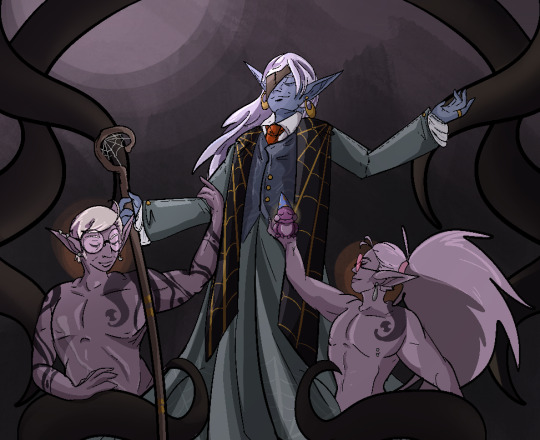
6 notes
·
View notes
Text
Tipp: Hülle Hütte Haut - im Peschkenhaus
29. September 2024 bis 19. Januar 2025 im Kunstverein Peschkenhaus Moers Das Peschkenhaus ist ein lebendiges Beispiel für außergewöhnliches Bürgerengagement in Moers. Nach Schließung als städtische Galerie konnte das Bürgerhaus durch eine Bürgeraktiengesellschaft erworben werden. Die langjährige, überregionale Bedeutung als Ausstellungsort zeitgenössischer Kunst wird durch den 2007 gegründeten…
#Andre Linpinsel#Ausstellung#Behausungen#Benjamin Tiberius Adler#Christoph Breitmar#Exhibition#Frederik Göke#Hülle Hütte Haus#Installation#Kunstausstellung#Manuela Mordhorst#Matthias Schamo#Moers#Naoko Tanaka#Peschkenhaus#Ulrike Kessl#Walter Schernstein
0 notes
Text


And thus the Adler family naming convention was born.
0 notes
Text

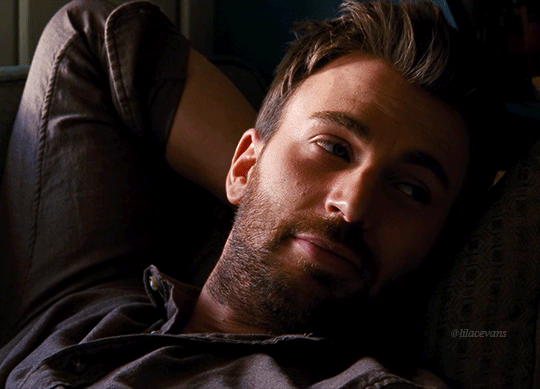
𝑠𝑖𝑔ℎ𝑠 𝑖𝑛 '𝑖 𝑙𝑜𝑣𝑒 𝑑𝑖𝑙𝑓𝑠'
#chris evans#cevans#cevansedit#chris evans gif#chrisevans#chrisevansgifs#chris evans gifs#chris evans edit#chrisevansedit#cevansgifs#evanstan#frank adler#lila's frank gifs#gifted#are you fucking kidding me christopher#christopher how dare u
565 notes
·
View notes
Text
Tweets of the Week: 20 May 2023
Lane Moore on longevity: i told the bus driver he was hot when i got off the bus because life's short but now he's my driver on the way back too so turns out life is long— You Will Find Your People is out now📕NYC 5/26 (@hellolanemoore) May 20, 2023 Brian Gaar on happiness: Then I guess nothing will pic.twitter.com/5qCXecsrPN— Brian Gaar (@briangaar) May 19, 2023 A thread in which Cranky…
View On WordPress
#adam cerious#brian gaar#buddyhead#christopher rees#cranky federalist#eric adler#lane moore#law boy#mister bossy#murrman5#sam haselby#the sunny side of franz kafka
0 notes
Text
A Different Kind of Queen of Crime- five ways that Dorothy L Sayers changed the way we see Sherlock Holmes
For my first Holmesian post- a crossover with one of my more usual subjects on my other blog! For when one is talking about Sherlock Holmes, in particular Sherlock Holmes scholarship, there are nor many more pivotal names than Dorothy L Sayers. Sure, Christopher Morley may have had a greater impact on Sherlockian culture, and Richard Lancelyn Green on Holmesian scholarship, to name only a few- but Sayers's contributions to scholarship and "the game" were early and underratedly pivotal.
If you're a Sherlock Holmes fan who is unfamiliar with Sayers's influence, or a Sayers fan who had no idea she had any interest in Holmes, keep reading! (And if you're a Sherlock Holmes fan who wants to know what I think about Sayers, check out her tag on my main blog, @o-uncle-newt. Or, more to the point, just read her fantastic books.)

There's a great compilation of Sayers's writing and lecturing on the topic of Holmes called Sayers on Holmes (published by the Mythopoeic Press in 2001), though some of her essays are also available in her collection Unpopular Opinions, which is where I first encountered them. It's not THAT extensive, and it's from an era in which Sherlock Holmes scholarship, such as it was, was still very much nascent. While a lot may have happened since Sayers was writing and talking about Holmes, she got there early and she made an immediate impact- and here's how:
She helped create and define Sherlockian scholarship: Don't take this from me, take it from the legendary Richard Lancelyn Green! At a joint conference of the Sherlock Holmes Society and Dorothy L Sayers Society, he said that "Dorothy L. Sayers understood better than anyone before her the way of playing the game and her Sherlockian scholarship gave credibility and humor to this intellectual pursuit. Her standing as an authority on the art of detective fiction and as a major practitioner invigorated the scholarship, and her...Holmesian research is the benchmark by which other works are judged. It would be fair to say, as Watson said of Irene Adler, that for Sherlockians she is the woman and that …she 'eclipses and predominates the whole of her sex.'" We'll go into a bit more detail on some specific examples below, but one important one is that, as Green notes, Sayers was not only a mystery writer but an acknowledged authority on mystery fiction, whose (magisterial) introduction to The Omnibus of Crime, a then-groundbreaking history of the genre of mystery fiction, included a highly regarded section on the influence of Holmes on mystery fiction. She was able to write not just literate detective stories but literate critiques of others' stories and the genre (as collected in the excellent volume Taking Detective Stories Seriously), and as such, the writing she did on Holmes was well received.
She cofounded the (original iteration of) the Sherlock Holmes Society of London: While the current iteration of the Society lists itself as having been founded in 1951, a previous iteration existed through the 1930s, founded as a response to the creation of the Baker Street Irregulars in New York and run by a similar concept- the meeting of Sherlock Holmes fans every so often for dinner at a restaurant. Sayers, who seems to have been much more clubbable than Mycroft Holmes, helped run the Detection Club on corresponding lines as well. (Fun fact, Sir Arthur Conan Doyle was invited to be the first president of the Detection Club! However, he refused on grounds of poor health and, either right before or right after he died, the Detection Club met for the first time with GK Chesterton as president.) While the 1930s society didn't last, and Sayers didn't decide to join the newly reconstituted club in 1951, her presence from the beginning was key to the establishment of Holmesian scholarship.
She helped define The Game: Sayers didn't invent The Game, as the use of Higher Criticism in the study of Sherlock Holmes came to be called. (The Game now often refers to something a bit broader than that, but it's a pretty solid working definition to say that it is the study of Holmes stories as though they took place in, and can be reconciled with, our world.) Her friend Father Ronald Knox largely invented it almost by accident- as Sayers described it, he wrote that first essay "with the aim of showing that, by those methods [Higher Criticism], one could disintegrate a modern classic as speciously as a certain school of critics have endeavoured to disintegrate the Bible." This exercise backfired, as instead of finding this analysis of Holmes stories silly, people found it compelling and engaging- and this style of Sherlockian writing lives on to this day in multiple journals. Sayers, with her interest in religious scholarship as well as Holmes, was well equipped to both understand Knox's original motivations as well as to carry on in the spirit in which further Game players would take his work, as we'll see. She also wrote the line that would come to define the tone used in The Game- that it "must be played as solemnly as a county cricket match at Lord's; the slightest touch of extravagance or burlesque ruins the atmosphere." While comedic takes on The Game would never vanish, her establishment of tone has lingered, and pretty much any in-depth explanation of The Game will include her insightful comment.
Some of Sayers's ideas became definitional: Here's a question- what's John Watson's middle name? If you said "Hamish," guess what- you should be thanking Dorothy L Sayers. (When this middle name was used for Watson in the BBC Sherlock episode The Sign of Three, articles explaining its use generally didn't bother to credit her, instead saying that "some believe" or a variation on that.) She was the one who speculated that the reason why a) Watson's middle initial is H and b) Mary Morstan Watson calls Watson "James" instead of "John" in one story is because Watson's middle name is Hamish, a Scottish variant of James, with Mary's use of James being an intimate pet name based on this nickname. It's as credible as any other explanation for that question, but more than that it became by far the most popular middle name for Watson used in fan media. Others of Sayers's ideas include that Watson only ever married twice, with his comments about experience with women over four continents being just a lot of bluster and him really being a faithful romantic who married the first woman he really fell for (the aim of this essay being to demolish HW Bell's theory of a marriage to an unknown woman between Mary Morstan and the unnamed woman Watson married in 1903, mentioned by Holmes in The Blanched Soldier); that Holmes attended Sidney Sussex College, Cambridge (she denied that he could have attended Oxford, having gone there herself- fascinatingly, Holmesians who went to Cambridge usually assert that he attended Oxford! Conan Doyle of course attended neither school); and reconciling dates in canon (making the case that one cannot base a claim for Watson's mixing up on dates on poor handwriting as demonstrated in canonical documents, as it is clear from the similarity of different handwriting samples from different people/stories that they were written, presumably transcribed for publication purposes, by a copyist).
She wrote one of the only good Holmes pastiches: Okay, fine, I'm unusually anti-pastiche, and genuinely do like very few of them, but this is one that I love- and even more than that, it's even a Wimsey crossover! On January 8 1954, to commemorate the occasion of Holmes's 100th birthday (because, of course, he was born on January 6 1854- Sayers was more in favor of an 1853 birthdate but thought 1854 was acceptable), the BBC commissioned a bunch of pieces for the radio, including one by Sayers. You can read it here (with thanks to @copperbadge for posting it, it's shockingly hard to find online), and I think you'll agree it's adorable. The idea of Holmes and Wimsey living in the same world is wonderful, the way she makes it work is impeccable, and it's clearly done with so much love. Also you get baby Peter, which is just incredibly sweet!
I got into Dorothy L Sayers, in the long run, because I loved Sherlock Holmes from childhood and that later launched me into early and golden age mysteries- but it was discovering Sayers that brought me back full force into the world of Holmes. Just an awesome lady.
#hm holmes quotes from shakespeare's twelfth night a lot#he must have an affinity for the play.#sherlock holmes#john watson#john hamish watson#holmes#acd holmes#sherlock holmes canon#sherlockiana#the game#watsonian#biblical higher criticism#dorothy l sayers#lord peter wimsey#ronald knox#sayers on holmes#so why was sherlock holmes born on january 6?#if you think you know why#no it's stupider than that#so this guy christopher morley who basically invented sherlockian scholarly fandom#as in he started the baker street irregulars which is the org from which pretty much all other scholarly fan societies got inspiration#was like “hm”#“holmes sure does quote from twelfth night a lot”#“he must have an affinity for the play.”#“and why would he have an affinity for the play? because the twelfth night (jan 6) is his birthday.”#and so it has remained ever since#making clear the advantages of being first
193 notes
·
View notes
Text









Strixhaven NPCs as MLP characters
Left to right: Drazhomir Yarnask, (Minotaur > Yak) Zern's girlfriend, graduated Javenash Stoutclaw, (Owlin > Griffon) fourth year Lorehold Quentillius Antiphiun Melentor III, (Human > Pegasus/Changeling) Oriq shithead, current whereabouts unknown Larine Arneza, (Human > Unicorn/Changeling) Oriq shithead, current whereabouts: somewhere in the past Archmage Mordenkainen, (Human > Unicorn) Zern's mentor, sponsors Zern's tuition Kwalish, (Human > Draconequus) Benny's, (Group cleric) Father, creator of many crimes against reality Ernest Steeltamer, (Human > Earth pony) Zern's real father, royal smith on the plane of Pherros Zelaria Mihldrasi, (High Elf > Unicorn) Zern's mother, Royal Smith on the plane of Celanda Willow Ashhaven, (Half Elf > Pegasus) Lind's (Group Rogue) Mother Logblog Ashhaven, (Orc > Bison) Lind's Stepfather, butcher, the dad that stepped up. Abster'sine "Abbie" Adler, (Tiefling > Unicorn/Kirin) Lotto's (Group's other warlock) parent, pirate and smuggler. Christoph Adler, (Drow > Pegasus (?)) Lotto's father, runs a legitimate (?) bar in Skullport.
These are NPCs from my DnD Strixhaven campaign as MLP: FiM esque designs because it's fun.
#koski art#dnd#dungeons & dragons#dungeons and dragons#dnd character#zern#warlock#mlp#my little pony#mlp fim#mlp fanart
8 notes
·
View notes
Text


If you’ve read much Joan Didion, you’ve almost surely come across an observation or phrase that has changed the way you look at California, the media, or the culture of the late 20th century — or indeed, changed your life. But if life-changing writers have all had their own lives changed by the writers before them, which writers made Joan Didion the Joan Didion whose writing still exerts an influence today? Conveniently enough, the author of Play It as It Lays, Slouching Towards Bethlehem, and The White Album once drew up a list of the books that changed her life, and it surfaced on Instagram a few years ago:
"A Farewell to Arms" by Ernest Hemingway
"Victory" by Joseph Conrad
"Guerrillas" by V.S. Naipaul
"Down and Out in Paris and London" by George Orwell
"Wonderland" by Joyce Carol Oates
"Wuthering Heights" by Emily Brontë
"The Good Soldier" by Ford Madox Ford
"One Hundred Years of Solitude" by Gabriel Garcia Márquez
"Crime and Punishment" by Fyodor Dostoyevsky
"Appointment in Samarra" by John O’Hara
"The Executioner’s Song" by Norman Mailer
The Novels of Henry James: "Washington Square", "Portrait of a Lady," "The Bostonians," "Wings of the Dove," "The Ambassadors," "The Golden Bowl," "Daisy Miller," "The Aspern Papers," "The Turn of the Screw"
"Speedboat" by Renata Adler
"Go Tell It on the Mountain" by James Baldwin
"Notes of a Native Son" by James Baldwin
"The Berlin Stories" by Christopher Isherwood
"Collected Poems" by Robert Lowell
"Collected Poems" by W.H. Auden
"The Collected Poems" by Wallace Stevens
Joan Didion
Source: Follies Of God
5 notes
·
View notes